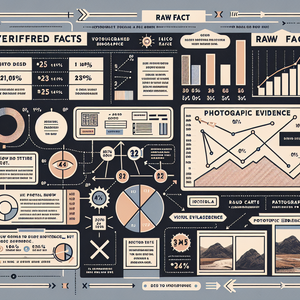Breaking Down the Pay Gap: Gender Disparities in Management Consulting

Despite the allure of management consulting, research indicates that women in the field earn approximately 80% of what their male counterparts do. A report by McKinsey & Company reveals that women are often underrepresented in senior roles, which contributes significantly to the salary discrepancies observed. For instance, a mid-level female consultant may earn $90,000, while her male counterpart at the same level could be pulling in $112,000. This disparity is not merely a number; it has profound implications on women's financial futures, affecting their career trajectories, retirement savings, and overall financial security. The fact that women are less likely to ascend to leadership roles exacerbates this inequality, as senior positions typically command higher salaries and bonuses.
Personal Stories: Voices from the Field
To capture a more nuanced understanding of the gender pay gap in management consulting, we reached out to several female consultants who shared their experiences. Sarah, a senior consultant at a leading firm, expressed her frustration during performance reviews. "I consistently received positive feedback and high ratings, but it took years for my salary to reflect my contributions. Meanwhile, I watched male colleagues receive promotions and raises more swiftly," she recalls. This sentiment underscores a broader systemic issue that often leaves women feeling undervalued. Jessica, who ultimately left consulting due to the pay disparity, shared her journey with us. "I loved my job and the team I worked with, but the feeling of being financially undervalued was overwhelming. I eventually found a role in a company that prioritized equal pay and inclusivity, and I haven't looked back since." Her story illustrates the emotional toll the gender pay gap can take, as well as the potential for women to find more equitable opportunities elsewhere.
Strategies for Addressing the Pay Gap
Addressing the gender pay gap in management consulting necessitates a multifaceted approach that combines individual and organizational efforts. Here are several strategies that can contribute to fostering equitable compensation: 1. **Transparent Salary Structures**: Firms should implement transparent salary structures that clearly outline pay ranges for various roles. This practice eliminates ambiguity and empowers employees to understand their earning potential better. 2. **Negotiation Training**: Providing negotiation training for all employees, particularly women, can equip them with the skills and confidence necessary to advocate for fair compensation. Workshops and mentorship programs can offer valuable resources to help women negotiate effectively. 3. **Regular Pay Audits**: Conducting regular pay audits allows organizations to identify and address gender disparities in compensation proactively. By analyzing salaries and promotions, companies can take informed steps to rectify imbalances. 4. **Mentorship and Sponsorship Programs**: Establishing mentorship and sponsorship initiatives can help women navigate their careers and gain access to opportunities that may otherwise be out of reach. Successful women in leadership positions can guide and advocate for their mentees, fostering a supportive network.
The gender pay gap in management consulting is a complex issue that requires urgent attention. By illuminating the statistics and personal accounts of female consultants, we can begin to understand the myriad challenges they face in achieving equitable compensation. Implementing strategies such as transparent salary structures, negotiation training, pay audits, and mentorship programs can create a more inclusive environment for all consultants. Addressing this disparity is not merely a matter of fairness; it is essential for the long-term success and sustainability of the consulting industry. As awareness grows and organizations take actionable steps, we can aspire to a future in which talent, rather than gender, dictates compensation in management consulting. By fostering an equitable workplace, the industry can not only enhance its reputation but also unlock the full potential of all its employees.
Diversity and Inclusion Consultant
Large consulting firms (e.g., Deloitte, PwC), corporate HR departments, and non-profit organizations
Core Responsibilities
Develop and implement strategies to promote diversity, equity, and inclusion within organizations.
Conduct assessments and surveys to understand the current organizational culture related to diversity.
Provide training and workshops to educate employees on inclusive practices and unconscious bias.
Required Skills
Strong understanding of diversity frameworks and regulations.
Excellent communication and interpersonal skills to engage with diverse groups.
Experience in change management and organizational development.
Management Consultant - Gender Equity Specialist
Consulting firms (e.g., McKinsey & Company, BCG) focusing on human capital strategies
Core Responsibilities
Analyze organizational policies and practices to identify barriers to gender equity in the workplace.
Collaborate with leadership to develop actionable plans aimed at closing the gender pay gap.
Facilitate focus groups and interviews to gather insights from female employees about their experiences.
Required Skills
Expertise in gender studies or a related field, with a focus on workplace dynamics.
Strong analytical skills to interpret data and provide evidence-based recommendations.
Proficient in stakeholder engagement and strategic communication.
HR Business Partner - Compensation and Benefits
Fortune 500 companies, tech firms (e.g., Google, Amazon), and HR consulting firms
Core Responsibilities
Partner with business leaders to design and implement compensation strategies that align with organizational goals.
Conduct market analysis to ensure competitive salary structures and benefits offerings.
Lead initiatives to educate employees on compensation policies and benefits programs.
Required Skills
In-depth knowledge of compensation analysis and labor market trends.
Strong project management skills and ability to manage multiple priorities.
Excellent negotiation and communication skills.
Organizational Development Specialist
Non-profits, educational institutions, and corporate HR departments
Core Responsibilities
Assess organizational needs and design interventions to enhance employee engagement and performance.
Facilitate workshops and training sessions that address issues of equity and inclusion.
Collaborate with management to create a culture that supports diverse talent retention and development.
Required Skills
Strong background in organizational psychology or human resources.
Proficiency in data analysis to measure the effectiveness of development programs.
Excellent facilitation and coaching skills.
Employee Relations Manager
Large corporations (e.g., IBM, GE), consulting firms, and government agencies
Core Responsibilities
Manage employee relations issues and ensure compliance with labor laws and company policies.
Mediate disputes and provide guidance to management on resolving workplace conflicts.
Develop programs to improve employee engagement and foster a positive work environment.
Required Skills
Strong understanding of labor laws and employee rights.
Exceptional problem-solving and conflict resolution skills.
Ability to work collaboratively with various stakeholders to promote a harmonious workplace.


